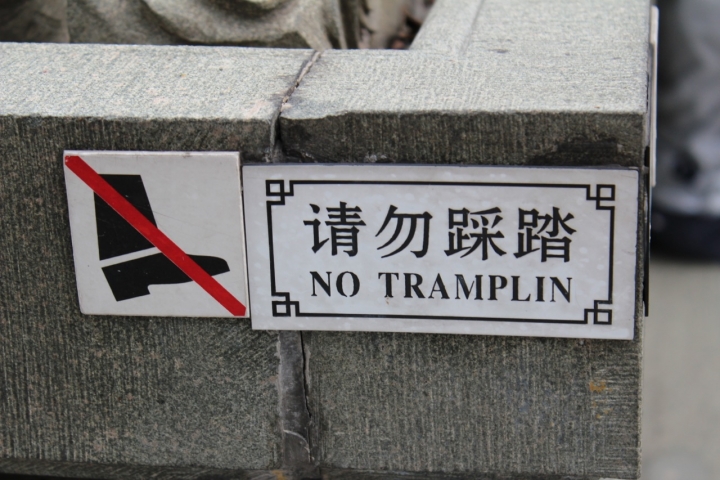If you are thinking of using an online website translator for your website or project, you might want to think twice. A lot of people think that website language translators are an easy cheap way to get unlimited amounts of text translated. For small paragraphs it might be ok, but if you are thinking of translating a blog or a website, here are 8 things that a website translator will not do.
1. Pick the right prefixes and tenses
Online translators directly translate the text that is uploaded; however if you are translating something from English to German you might find a German will not understand your translated text. Why? Because there are around 20 different prefixes used in the German language that an online translators would know how to use correctly, so the translated sentence can mean something completely different. It’s fundamental to get translations right if you are planning to make business from the translated content, so if you use an online translator, make sure to get the text checked by a native.
2. Apply a tone of voice
If you are trying to translate a friendly blog written in a light tone of voice, your translated version will sound monotone with no voice of enthusiasm, because translations are done directly, but you can’t translate the writing style with an online translator.
3. Identify product names, places names, peoples names
If you have kept the capital for any of the above names, an online translator will also keep the capital, however they will be objectified without any real differentiation between a person or a location. You need to be very careful here because there is a high risk for out of context translations. Online translators will not necessarily know how to translate from feminine to masculine, hence why person might sound like a location when you read the translated version.
4. Apply Consistency!
If you have a document written by more than one person, and you want to get it all translated, you will have a miss-match in the translations. The different authors will become clearly evident in the translations as the writing styles are different and therefore differences in grammar use and writing flow, will be magnified in the translated version.
5. Translate the right intentions
This is one of the most common problems with online website translators, they usually show one translation for multiple sentences. Even if you are saying ‘Hi, how are you?’ in different types of ways to address your target audience, you will be faced with exactly the same translations for them all, as online translators, for one word have multiple same word associations, which is not cool if you need a website translated to address certain audiences.
6. Localise!
In the UK words like ‘cheers’ ‘ ta’ ‘lush’ are used. An online translator will not be able to pick up local lingo but will simply translate directly which can sound very strange in a paragraph.
7. Forget about phrases
This kind of also falls with the point above, if you use certain phrases like ‘ having a knees up’ ‘ lose the plot’ ‘throw a spanner in the works’ . Do not expect these to get translated and still have the same meaning. It’s also the same if you are translating from a different language into English. Phrases and local lingo sound very different once they have been translated using online translators.
8. Conversation stoppers
So let’s say by some miracle you have managed to get your content translated and it reads ok, and someone wants to contact you in their native language. What are you going to do? Use Google Translate? Conversation translations are the ones where the tone and grammar really fail. You might sound like the most enthusiastic, eloquent person, but your recipient will only get robotic, jumbled words, which can not only insult, but make you lose custom in minutes. If you are planning to use this as an option, please make sure to apologise beforehand about your language (but even that translation might come out weird).
So what’s the solution for getting flawless, efficient translations?
A lot of people resort to online translation tools because they are free or very cheap, but the don’t realize that there are thousands of natives selling their language skills on micro jobbing websites. Translations start as little as $0.04 per word translation, which in a grand scheme of things is nothing. And you can have all of the above, so phrases can be translated to sound localized and contain the same meaning, and the writing style can be as official or as care-free as you want.
One down side of using a translator?
Depending on how much work you need to get translated it can take up to a day or two, which website translation tools can offer instantly. But using a real person to translate your work will have higher long-term rewards and will ensure you don’t lose a single international customer. And the great thing is, because translators offer their services for such low prices, you can get your work double checked, get a person to translate and another native to proof-read, so you have the closest translation as you possibly can.




